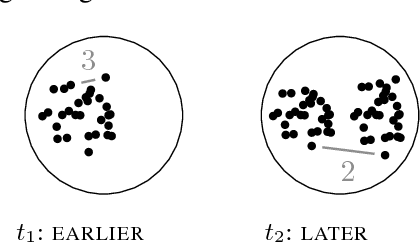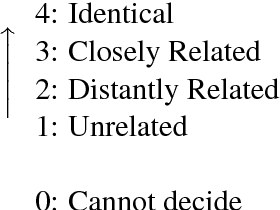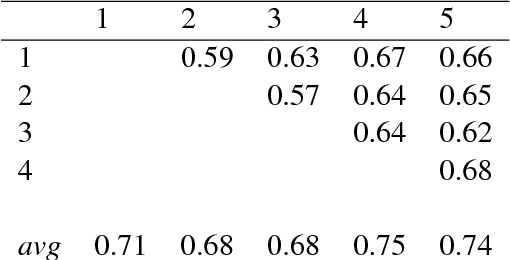Diachronic Usage Relatedness (DURel): A Framework for the Annotation of Lexical Semantic Change
Paper and Code
Apr 18, 2018



We propose a framework that extends synchronic polysemy annotation to diachronic changes in lexical meaning, to counteract the lack of resources for evaluating computational models of lexical semantic change. Our framework exploits an intuitive notion of semantic relatedness, and distinguishes between innovative and reductive meaning changes with high inter-annotator agreement. The resulting test set for German comprises ratings from five annotators for the relatedness of 1,320 use pairs across 22 target words.
* 5 pages, NAACL
 Add to Chrome
Add to Chrome Add to Firefox
Add to Firefox Add to Edge
Add to Edge